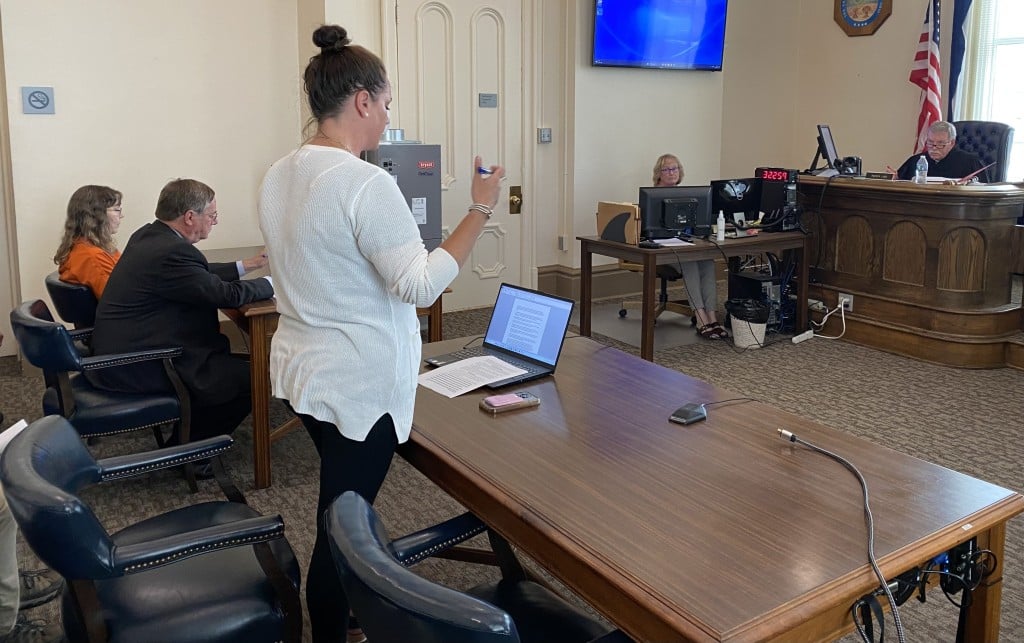Joe Biden nominates Cherokee citizen to federal bench
Kalle Benallie
ICT
A Cherokee citizen is among President Joe Biden’s nominees for federal judge seats.
Former Cherokee Nation Attorney General Sara Hill was nominated Wednesday to serve as a federal judge in the United States District Court for the Northern District of Oklahoma.
If confirmed by the U.S. Senate, she would be the first Native American woman to serve as a federal judge in Oklahoma. Hill is Biden’s fourth Native judicial nominee.
“She is a brilliant attorney and dedicated public servant who possesses the knowledge, demeanor and compassion to serve the country well on the bench. As a female and a citizen of the Cherokee Nation, she not only adds diversity to the ranks of federal judges, she also brings knowledge of Indian Country issues that we need more among federal judges,” Cherokee Nation Principal Chief Chuck Hoskin said.
SUPPORT INDIGENOUS JOURNALISM. CONTRIBUTE TODAY
Hill previously served the Cherokee Nation as secretary of natural resources from 2015 to 2019 and most recently as attorney general for the tribe from 2019 to 2023. She is currently a lawyer in private practice.
Her other work experience includes being an assistant attorney general from 2004 to 2014, deputy attorney general from 2014 to 2015 and special assistant U.S. attorney in the U.S. Attorney’s Office for the Northern District of Oklahoma from 2014 to 2015.
Hill received her juris doctor degree from the University of Tulsa in 2003 and her bachelors from Northeastern State University in 2000.
The National Congress of American Indians and the Native American Rights Fund have issued their support for Hill.
“Sara Hill will bring unparalleled experience in law and policy to our justice system. NCAI urges the swift confirmation of Ms. Hill as the nomination moves before the U.S. Senate,” Larry Wright Jr, executive director at the National Congress of American Indians, said in a press release.
Native American Rights Fund Executive Director John Echohawk said Hill has a “strong history of public service and possesses excellent qualifications to be a federal judge.”
Additionally, Shanlyn Park, Native Hawaiian, was nominated by U.S. Sens. Mazie K. Hirono and Brian Schatz to be a judge on the U.S. District Court for the District of Hawai’i
Sign up for ICT’s free newsletter
The National Congress of American Indians, Native American Rights Fund and the National Native American Bar Association have expressed their support of Park’s nomination to Sen. Richard Durbin, chairman of the Senate Judiciary Committee, and Sen. Lindsay Graham, ranking member on the committee.
“Judge Park is highly qualified for a federal judgeship. She is an experienced judge and before her appointment to the state court where she currently serves, she was an exceptionally accomplished litigator with experience litigating in state and federal courts, on complex criminal and civil matters, in private practice and in public service as a federal prosecutor,” the press release states.
If appointed and confirmed, Park would be the first Native Hawaiian woman federal judge in Hawaiʻi.
Park and fellow nominee Micah Smith went before the senate judiciary committee on Oct. 4.
Park’s prior work experience includes being a law clerk for Judge Francis I. Yamashita, U.S. Magistrate Judge for the District of Hawai’i from 1995 to 1996; working at a private practice at Hisaka Stone & Goto from 1996 to 1997; an assistant federal public defender in the Office of the Federal Public Defender for the District of Hawai’i from 1997 to 2017; work at the the Honolulu law firms McCorriston Miller Mukai MacKinnon, L.L.P. and Gallagher Kane Amai & Reyes from 2017 to 2021. She currently serves as a state court judge on the First Circuit Court on Oahu.
Hill received her juris doctor from the University of Hawai’i William S. Richardson School of Law in 1995 and her bachelors of arts from Chaminade University of Honolulu in 1991.

Our stories are worth telling. Our stories are worth sharing. Our stories are worth your support. Contribute $5 or $10 today to help ICT carry out its critical mission. Sign up for ICT’s free newsletter








